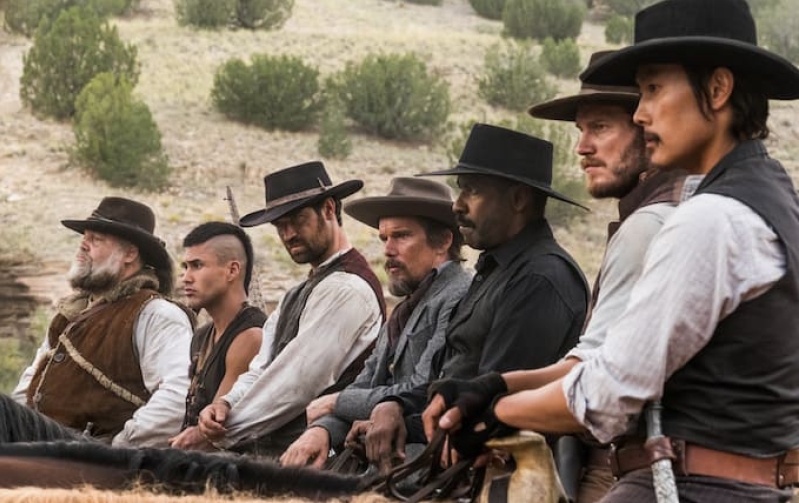
The new remake of The Magnificent Seven, starring Denzel Washington and Chris Pratt, has already made a notable debut the box office, raking in $1.75 million on Thursday night after merely a couple of hours of onscreen time across 3,096 cinemas.
As pointed out by The Hollywood Reporter, the studios behind the remake’s release- Sony and MGM- will be thrilled to know that the Western film is already set to welcome an opening weekend earnings of at least $30 million, which could eventually grow to $40 million.
With a budget of $108 million, it has been a big question whether ‘The Magnificent Seven’ will stay around long enough to move past this amount. This year’s film is a remake of John Sturges’ own ‘The Magnificent Seven’ that was released in 1960, which itself is also a remake of ‘Seven Samurai’ by Akira Kurosawa in 1954.
This year, director Antoine Fuqua has brought together a star-studded cast; Washington and Pratt is joined by Ethan Hawke, Vincent D'Onofrio, Byung-hun Lee, Manuel Garcia-Rulfo, Martin Sensmeier, Haley Bennet and Peter Sarsgaard.
According to Washington, their remake of ‘The Magnificent Seven’ closely follows the 1960 original, and Academy Award-winner has keenly taken part in the cowboy action.
“I read the script and thought, 'This is a good idea, it’s fun: just to shoot guns and ride horses.’ And I knew that we were going to win,” he said. “I had never ridden that much before and I liked feeding my horse and washing him. Equine therapy is really good for the soul.”
Washington’s adventures differ from the 1960’s remake with Yul Brynner and the others; instead of seven Caucasian members, the new ‘Magnificent Seven’ is comprised of a Mexican outlaw, a Native American warrior, an Asian assassin satisfied with wielding knives, and Washington himself as the African-American leader.
The 61-year-old actor has never taken part in a Western film and admits he did not grow up watching such genre either.
“My father was a minister so we grew up in a church and we didn’t go to the movies,” he said. “King of Kings and The Ten Commandments and that was it. Appearing in a Western wasn’t like some childhood dream.”
Director Fuqua also opened up about “staying true” to Kurosawa’s story despite coming up with a group of protagonists that are noticeably diverse.
“The most important thing was to stay true to the DNA of Kurosawa’s Seven Samurai,” the helmer said at the Toronto Film Festival. ‘You can’t do the same thing every era. Westerns change all the time. If we were sticking to just one way of doing something then all westerns would be all white guys looking like John Wayne. Westerns change with the time we’re in, so we made our film based on the world we’re living in.”







